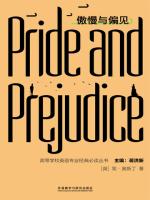Pride, Prejudice, an
Xavier
Pride, Prejudice, and the Courage to See Clearly: A Review of Pride and
Prejudice Jane Austen’s Pride and Prejudice is more than a beloved
romantic novel—it is a sharp, witty exploration of human vanity,
societal expectations, and the transformative power of self-awareness.
Set in the quiet elegance of 19th-century English countryside, the story
revolves around Elizabeth Bennet, a quick-witted, independent young
woman, and Fitzwilliam Darcy, a reserved, proud gentleman. Their journey
from mutual disdain to deep affection is not just a tale of love; it is
a lesson in unlearning prejudice and humbling pride—a theme that remains
as relevant today as it was when the novel was first published.
Elizabeth Bennet stands out as one of literature’s most memorable
heroines, not for grand gestures, but for her fierce intelligence and
unwavering integrity. In a society that values women primarily for their
ability to marry well, Elizabeth refuses to sacrifice her self-respect
for status or security. She mocks the absurdity of her mother’s
obsession with marrying off her daughters, challenges the arrogance of
Mr. Collins (her obsequious cousin), and dares to speak her mind even
when it defies social norms. Her “prejudice” arises not from malice, but
from a understandable wariness: when she first meets Darcy, his cold
demeanor and dismissive comment about her appearance make her judge him
as arrogant and unfeeling. What makes Elizabeth compelling, however, is
her willingness to grow—when she learns the truth about Darcy’s quiet
kindness (and the lies of Mr. Wickham, who manipulated her trust), she
confronts her own bias, admitting, “Until this moment, I never knew
myself.” Darcy, too, is a study in transformation. His “pride” is
rooted in his privileged upbringing and social status, which makes him
initially look down on those he deems “beneath” him—including the Bennet
family. Yet his love for Elizabeth forces him to confront his flaws: he
sets aside his pride to apologize for his past mistakes, uses his
influence to protect Elizabeth’s sister Lydia from scandal (even at
great personal cost), and learns to value character over class. Austen’s
genius lies in making Darcy’s growth feel authentic—he is not a perfect
hero, but a man who learns to be better, just as Elizabeth learns to see
beyond first impressions. Their relationship works not because they are
“perfect for each other,” but because they challenge each other to
become their best selves. Austen’s prose is a masterclass in wit and
subtlety. She uses dialogue to reveal character—Elizabeth’s sharp
banter, Darcy’s awkward sincerity, Mrs. Bennet’s shrill anxiety—making
each interaction feel vivid and true. Her satire of societal absurdities
is gentle but incisive: she mocks the emptiness of wealth without virtue
(seen in Lady Catherine de Bourgh, Darcy’s overbearing aunt) and the
folly of judging others by their social rank. Yet Austen never sneers at
her characters; even the most ridiculous (like Mr. Collins) are drawn
with a touch of humanity, reminding readers that pride and prejudice are
flaws we all share, not just the villains of the story. What makes
Pride and Prejudice timeless is its focus on universal human truths. At
its core, it is a story about seeing and being seen—about looking past
the masks people wear (of pride, of social status, of politeness) to
recognize their true selves. Elizabeth and Darcy’s love is not a fairy
tale; it is hard-won, born from humility and understanding. In a world
that still often judges others based on surface-level
impressions—wealth, appearance, or social media personas—Austen’s novel
reminds us that the most meaningful connections come when we set aside
our biases and dare to see the person beneath. In the end, Pride and
Prejudice is a celebration of independence, integrity, and love that
transcends social barriers. Elizabeth and Darcy’s happy ending feels
earned, not because they “get married,” but because they have both
grown—they have learned to humble their pride, let go of their
prejudice, and choose each other for who they truly are. For readers,
this is the novel’s greatest gift: it teaches us that love is not just
about passion, but about respect—and that the first step to loving
others is learning to know ourselves.



 京公网安备 11010802032529号
京公网安备 11010802032529号